#tgaa meta
Text
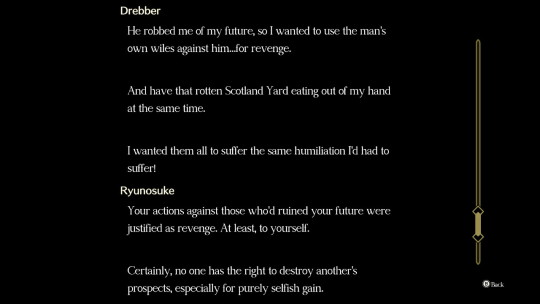
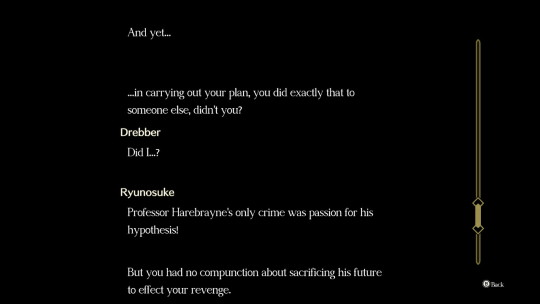
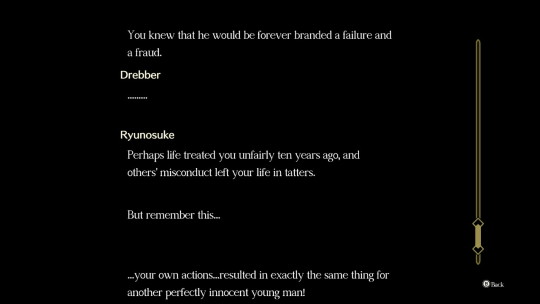
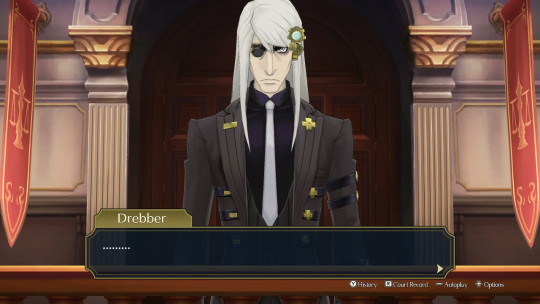
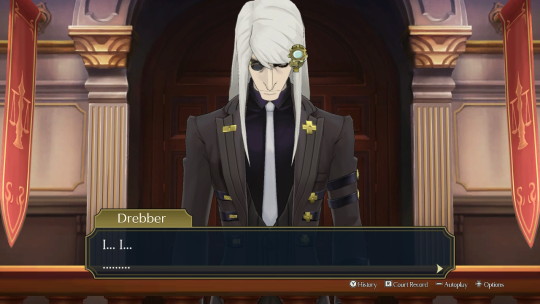
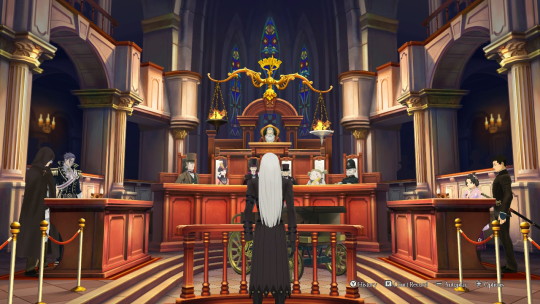
First Ashley Graydon. Then Raiten Menimemo.
And now... Enoch Drebber.
This game involves so many cycles of violence. Wrongdoing prompting resentment leading to revenge which in itself echoes the very wrongdoing that prompted it.
It's such a cool theme, and I love it each time. Enoch is the only one of the villains so far who hasn't outright admitted the truth of what he's being told ('you have become what you hated'), but you can still absolutely see it hit home. For all the resentment he had for Harebrayne's dumb invention, it was never really about the man himself, more just about what had been taken from Enoch. I don't think he ever really thought through how much his actions would hurt Albert and his career. He certainly never made the connection to his younger self in the way that Ryunosuke points out here.
Of course, he's also the only one who speaks of his motivation more in the sense of revenge/humiliation without talking too much about their larger role in society (Graydon talking about McGilded's use of money to cover up his crimes, Menimemo talking about how murder was being covered up and justice denied). It's definitely implied but his motivation is more personally focused, on what they did to him. It still fits in this theme though.
21 notes
·
View notes
Text
Still trying to figure out why TGAA2-4 and TGAA2-5 set off my "man this is a lot of dudes dudeing" hackles when the other Ace Attorney final cases do not - I thought my baseline expectation of AA was that it's dude-centric while having rad female characters, but apparently it might've been higher, because those two TGAA cases meet that bar.
I kinda see the difference once I iterate through every other installment's (AA1-AA6, AAI1-2, crossover) finale. There's two levels to it.
There's the backstory level, where if you exclude TGAA all the other finales' have at least one major female player figuring into the drama of the backstory, often more. Misty Fey was nowhere near the elevator on DL-6 but she is inseparable from the case, for instance, and that radiates out to Mia and Maya.
Sithe comes closest, with her role in the Professor coverup, but she gets uninterestingly shuffled off in 2-3, her daughter relaying her reports in a way that dilutes both their presences. Even in the finale with the biggest similarity to this - dude-heavy conspiracy with only one female participant, we see more of that participant than we do Sithe, and there's another woman invested in exposing the conspiracy.
Then there's the present-day courtroom and investigation. Which sounds odd, given that if we're playing a male character as we usually are, we almost always have a female assistant around. There's a lot of room for variety here though. I'll take 1-4 again, both because it is the most-played finale case and so I hopefully won't be spoiling anyone, and also because it's a case where the victims were dudes, the arrested suspects were dudes, the only people within five feet of the both crime scenes were dudes, the only living people with previous direct connections to those dudes are dudes (we haven't met Franziska yet), so you know, it has as much of an excuse as any finale to focus solely on the dudes.
But Maya holding onto the bullet is what clinches us the case. It's not the biggest thing Maya ever does, but IDK, it's more interesting to me than Iris's part in the hologram deus ex machina. Heck, even comparing the finales of TGAA1 and TGAA2, in TGAA1 Susato's and Gina's decisions change how the incident and case play out, while in TGAA2 they each get bummed out for different reasons but don't do anything uniquely instrumental.
Anyway, I mostly like the puzzle-solving and emotional logic of TGAA2-4 and TGAA2-5, but I also would not have minded either Klint's widow (dead from childbirth) or Genshin's widow (dead from grief) surviving to the present day to have some feelings of their own and/or cause some drama of their own instead of being one of the three dead wives.
#tgaa#tgaa meta#the great ace attorney#brett exists but brett is a non-character#i guess it also being one case across two doesn't help?#where it's very long#and with all the other very long cases you have more women involved more heavily even if they aren't part of the final long interrogation#1-5 duh#5-4 + 5-5 no shit#6-5 yeah#mine
10 notes
·
View notes
Text
I think a lot about the Concept of ‘choices that matter’ in video games. Like, in terms of what it is that makes a choice ‘really matter’, what do we perceive as a choice that matters or has a consequence, how do different games with different amounts of branching or non-branching storylines play with those ideas… Especially because Undertale is one of my favorite games of all time, and it has often been hyped as ‘a game where your choices REALLY matter’ and… honestly, I dunno if all of this hype was fully conducive to Undertale. Because the way it handles the concept of Video Game Choices is actually a lot more interesting and complex than that simplistic descriptor makes it seem.
Because Undertale actually has a lot of choices that ‘don’t really matter’! Lots of dialogue choices and silly little decisions that on a first playthrough seem like they’re some sort of moral choice or a branching plotline but end up always leading to basically the same result regardless of what you do!
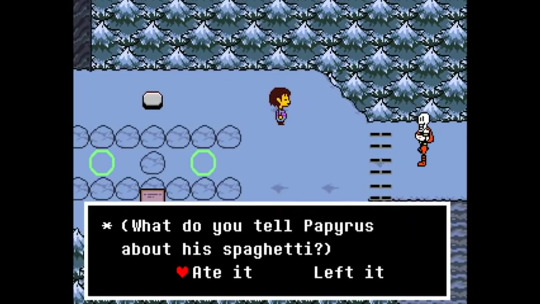
And the game doesn’t really try to hide the fact that these choices are kinda 'Fake'. I mean, on a first playthrough a player might assume there’s gonna be some Massive Consequences for picking the ‘wrong’ drink on Undyne’s date, but the game’s narrative expects for there to be multiple playthroughs and pretty much every Choice that Doesn’t Matter is peppered with that Undertale brand of wacky character-focused humor that inherently makes the moment memorable. Papyrus leading Undyne straight to you no matter what you do is basically a cross-timeline running gag.
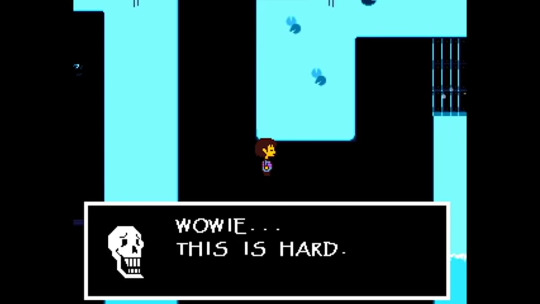
On some level I see this as a sort of gag that serves as meta-commentary about the expectations around Choices That Matter in Video Games. As in, a lot of games have their Moral Choices happen in clearly easily marked ‘this is a Moral Choice!’ moments within the story, while the actual gameplay (and any violence the player might cause as part of said gameplay) is basically entirely divorced from any element of narrative-branching and doesn't effect the story at all. Undertale basically entirely inverts this dynamic; the most important factor for which Route you’re own is how you handle your FIGHTs, and what seems like clearly-marked and obvious Moral Choices are just goofy insubstantial minor changes in dialogue.
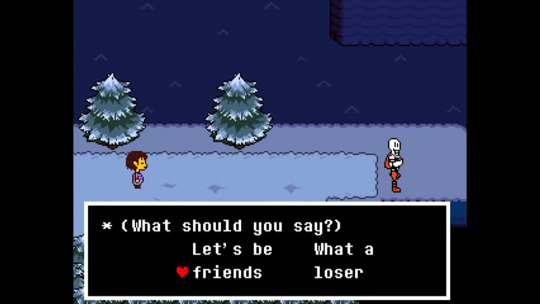
But also… there is also a level where you must ask yourself ‘what does it mean when we say that these choices Don’t Matter’. I mean, it’s not like they didn't change anything about the game, the Player still made the character say that other thing, the choice probably led to an alternate piece of dialogue, probably a joke with a call-back at the end of the game… The line between a one-off joke and an actual story-changing moment can be a little blurry if you look at it too deeply.

For example, near the end of the Waterfall part of the game, the Player is given the choice to save Monster Kid even at the risk of having to face down Undyne.

Pretty much anyone who isn’t deliberately trying to be an asshole is going to rush to save them and obviously that includes the Pacifist Route Players. But you can actually leave Monster Kid to die without it 'mattering' in the sense that it wouldn't divert you from the Pacifist Route. Undyne saves them instead of you, and ends up with slightly less HP for her battle (which might Matter for Runs when you try and FIGHT her but obviously not in Pacifist Runs) and… by the end of the game, during the extremely happy True Pacifist Ending, they still clearly remember that you abandoned them and are upset by it.

So… does saving Monster Kid ‘matter’ or not? On one hand, choosing not to save them mostly just changes a few lines of dialogue but… these lines of dialogue kinda recontextualize this happy ending and the Player’s actions in general. Despite the True Pacifist Ending otherwise portraying the Player/Frisk as a kind-hearted and brave hero... they still did this undeniably cowardly (and perhaps even cruel) act to one of their friends .
Was running away and leaving Monster Kid to die a brief but significant moment of weakness that the Player regrets and has cost them what could’ve been the start of a lovely friendship? Or is that simply that being a True Pacifist was always more of a matter of pragmatism rather than ideals? Were they only acting as a Pacifist to get that promised 'Best Ending', and only Monster Kid has an inkling they are not as heroic or kind as everyone thinks they are?
And then there’s the Snowman ‘quest’.
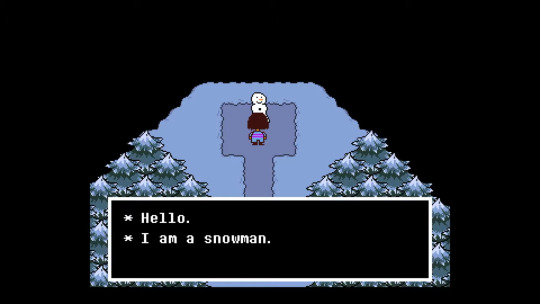
A free healing item given early in the game, with your mission being to carry it along in your inventory for as long as you can without ever consuming it. The only reward you will ever see from it is a few lines of dialogue…

But for many, it is more than enough of an incentive to preserve the Snowman’s Piece. You can do whatever you want with the Snowman without it ‘mattering’ in terms of Ending or consequences. You could carry it through all of your adventures with care and kindness... or you could eat it while he can’t see you and then go back to him and tell him that you ‘lost’ it and then get another piece and eat that as well, you could eat it right in front of his face, horrifying him.

And much like with Monster Kid, you can STILL get the True Pacifist Ending after doing that, all that would change is a few optional pieces of dialogue from the Snowman…

And a total recontextualization of the Player’s behavior and the ending. The Snowman sees the Player as a cruel and heartless person who is just pretending to be good so they can be liked - the way they acted with this immobile, powerless Snowman who could do nothing for them and their reputation reveals their true self. And he says their friends will realize that too one day...
Doing a True Reset on the Pacifist Ending is, by definition, a (almost) consequence-free action and yet it changes future Pacifist Routes immeasurably. Turning the Player into a Hypocrite doing the exact same thing they were trying to stop Flowey/Asriel from doing - trapping all of their friends into a time-loop so they can play with them forever while never actually letting them to enjoy freedom on the surface, simply because they are not willing to move on or put their friends' wishes and agency above their own. Nothing in the game actually changes, not one character can even suspect that you did something like that, and yet for the Player - this choice makes the entire Meaning of the game flip on its head.
Even the most famous and heavily-toted Big Consequence in the whole game - selling your soul to Chara after completing a Murder Route… mostly what it does is just… recontextualize the ending of the Game.
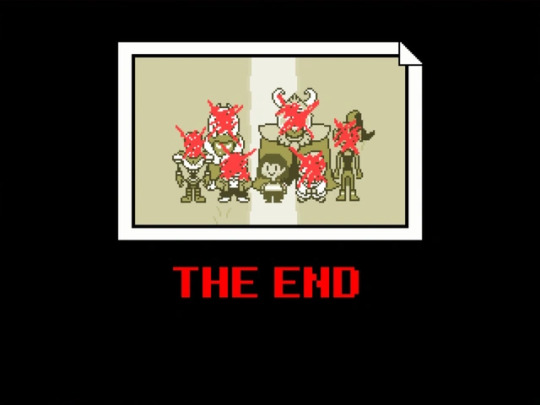
As a game, ‘Undertale’ is very much about the ways in which a Player engages with a game can radically recontextualize it. The huge chasm of difference between the Pacifist and Muder Routes is just the most literal example of it. But, in a way, even the tiny little Dialogue Options - where the lack of real choice and consequences is Obviously a Joke - matter. Because of the way they can recontextualize the Player Character’s behavior.
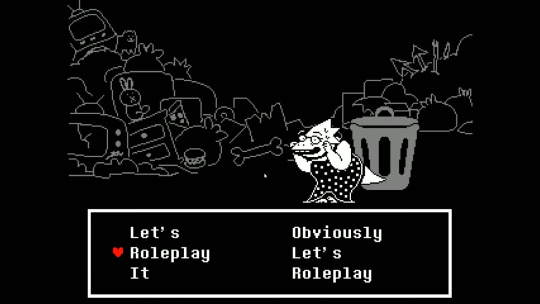
(Okay, maybe not this one, but hear me out…)
Do you trust Papyrus to not betray you, even after you spied on him with Undyne?
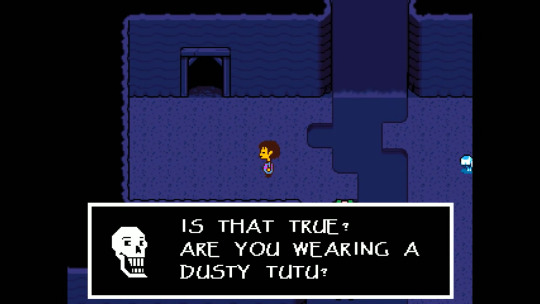
Do you have the integrity to admit you forgot something or got it wrong even when there’s no consequences for just lying about it?
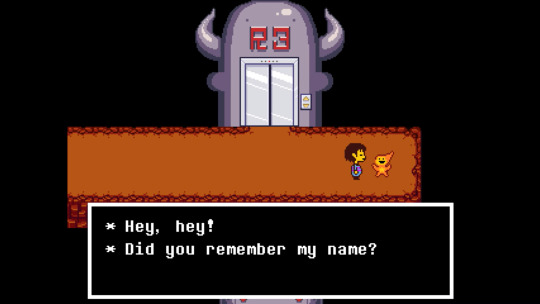
Are you a hypocrite for trying to get Alphys to be truthful with Undyne only to then immediately turn around and lie to Undyne yourself?
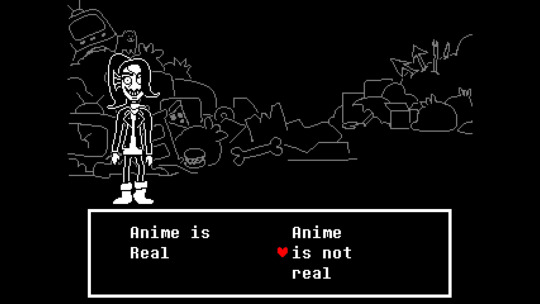
None of these choices matter for the ending, some of them don’t even get, like, a call-back joke or anything, but… if you are engaged in this story as a narrative, if you are invested in these characters as if they were people, if you are honestly trying to be the best person you can be, if you are trying to self-reflect at the way you approach this game… even the silliest little dialogue option can suddenly be imbued with deep implications and you can make them matter.
Undertale is one of the best demonstrations of this concept, but this is absolutely not exclusive to it. For example….
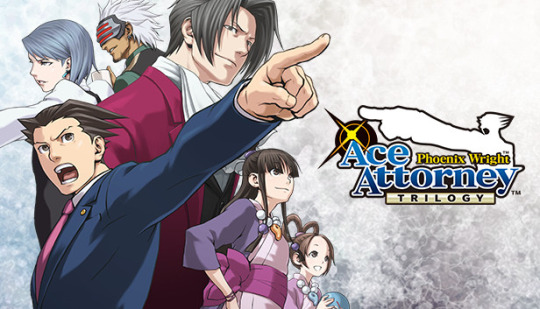
‘Ace Attorney’ is pretty much as far away as you can get from a ‘branching narrative’ within the video game sphere. It is a heavily-linear Visual Novel where 70% of the time it won’t even let you talk to random characters at anything but the exact order it expects you to and any ‘Bad Endings’ are basically just glorified Game Over Screens. (... because this is the Internet and something something piss on the poor, I should probably specify that I am talking about ‘Ace Attorney’ because I love Ace Attorney and these are neutral descriptions of the game and not complaints. There’s nothing wrong with a game being linear.)
If there’s any Dialogue Choice in AA, it’s generally a very basic ‘right answer-wrong answer’ choice between Progress and a Penalty, or a total non-choice that just gets you to the same final result regardless. Except… Well… as we just talked about, getting to the same final result doesn’t necessarily mean a choice is ‘meaningless’, does it?
There’s actually a lot of great storytelling moments where Ace Attorney, despite its otherwise strict linearity, uses this exact sort of recontextualizing mindset I’ve talked about with Undertale to make choices with some really powerful emotional impact…. Even if technically, the ending is the same ending. It can be something as basic as ‘even if picking this Wrong Answer doesn’t get me a penalty, it still embarrassed my character and disappointed my friends/rivals and thus I feel bad for picking it’. Consequences as recontextualizing your character as more incompetent than they should’ve come across at that moment.
And then there’s moments like the iconic ending of ‘Justice for All’. That moment before Franziska bursts into the Courtroom with the case-making evidence and saves the day. The moment where it seems like Phoenix really is gonna have to pick between protecting his best friend and carrying out a rightful sentence.

The player gets to pick between the two options, but Phoenix never gets to say his choice out loud before Franziska comes running in... and yet… he, and the player, still made that choice. Even if no one ever has to experience the consequences of your choice, even if the rest of the world has no idea what Phoenix Wright would’ve chosen if the Miracle hadn’t happened, we know what we picked and that knowledge of the choice matters. Because of how we feel about this choice and what it says about our interpretation of Phoenix… and about us.
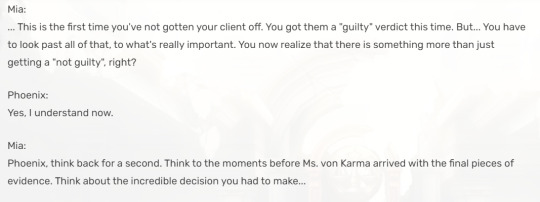

There’s also a bit of this ludonarrative device in ‘The Great Ace Attorney: Adventures’. During “The Adventures of the Runaway Room”, when you investigate the Omnibus for the second time and start finding things that… don’t quite fit together. When you’re finally starting to make progress with proving McGilded’s innocence, while also maybe starting to notice that something is… wrong with these pieces of evidence.

The unchanging linear narrative of the game is that Ryunosuke does eventually realizes McGilded's trickery, puts truth ahead of victory in court and yet, despite his effort and good intentions - the case still ends with a false Not Guilty verdict. And yet, the Player has the choice to... tweak the details.
There are several points where Ryunosuke can object, where he can call out the inconsistencies even though they help his case, where he can support Van Zieks in his accusations of tempered evidence... or he can not. Not necessarily intentionally misleading the Court as much as subconsciously trying to ignore the inconsistencies in the name of trusting his client.

And yet… in the end it doesn’t matter. Maybe Susato calls out the inconsistency instead of him, maybe Van Zieks does, maybe it remains uncontested but... no matter what you do, the case will end with a Not Guilty verdict (I mean, I guess you can deliberately fail the game but that will not progress the plot), McGilded doesn’t seem like he held a grudge (in the few minutes he had left to live), and a few cases later - Ryunosuke would always be punished for his part at this false verdict.
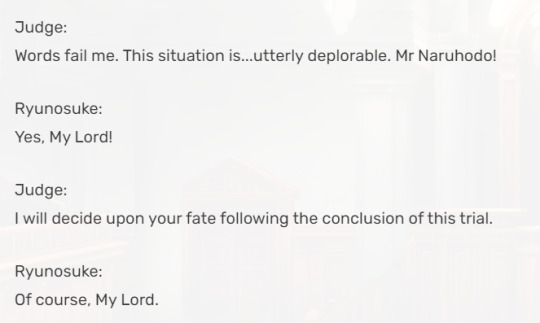
So it doesn’t really matter what Ryunosuke did back then? Does it matter if he did his best and called out every single inconsistencies or if he kinda half-assed it until he (and the Player) had to? He’s still going to suffer the same consequences down the line. And yet….
And yet, I think there’s something so powerful about giving us that option. About knowing that Ryunosuke, and we, did try and do something about McGilded's dirty tricks- even if it didn’t work. Or alternative, knowing that there was more that Ryunosuke and us could’ve done even if it was not nearly enough. Even if in the eyes of the game and the British Justice system there is no difference, the fact that we know what did and what we could’ve done can radically change the way the player feels about all of the later scenes concerning the truth about McGilded’s trial. It can radically change the way the player interpret Ryunosuke’s feelings about it as well.
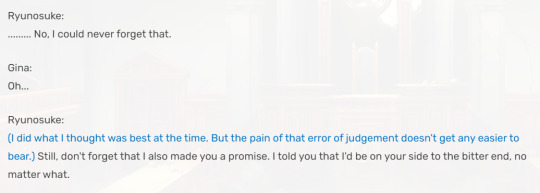
Because even though the game itself keeps playing along with the same script regardless, that trial had irrevocable consequences for the Player.
#undertale#ace attorney#ut#utdr#undertale analysis#undertale meta#ace attorney meta#the great ace attorney#under tale#tgaa#tgaac#dai gyakuten saiban#tgaa1#gaac#great ace attorney#aa2#justice for all#aa jfa#ace attorney jfa#farewell my turnabout#ace attorney justice for all#aa justice for all#phoenix wright#ace attorney trilogy#aa trilogy#phoenix wright trilogy#pwaa#phoenix wright ace attorney#gyakuten saiban
472 notes
·
View notes
Text
Come to think of it, there are four different Watsons in Great Ace Attorney. No less!
Doctor John H. Watson. Pretty obvious
Iris Watson. The one who actually writes stories about Holmes and promotes him. Currently is his roommate (also his daughter, but you get what I mean)
Yujin Mikotoba - the true and only friend of Holmes who witnessed all his escapades. The iconic duo
And who's the fourth one, you may ask? Well, it's obviously Ryunosuke himself! He's our own "Watson" in meta-sense: a POV character from whom we, players, witness Holmes' antics and who is here to tell us the story. Who is taught by the great detective's deduction skills in a fun silly minigame. Who is a relatable guy just trying to do his best at his job. What a wonderful Watson you've made, Ryuno!
#the great ace attorney#tgaa spoilers#dgs#ryunosuke naruhodo#herlock sholmes#iris wilson#iris watson#yujin mikotoba#meta#going with unlocalized names in this post to make it sound better haha
90 notes
·
View notes
Text
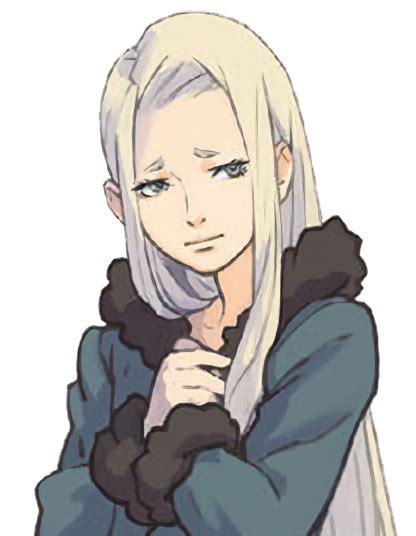
I wanted to talk about more characters. One such character is Nikolina Pavlova, whose involvement in the incident aboard the SS Burya serves as a focal point for ethical contemplation.(She's the youngest culprit on record in Ace Attorney's universe, and her story is sticky, to say the least)
Her involvement in the incident aboard the SS Burya further complicates her character. When a fellow passenger, Kazuma Asogi, discovers her, she accidentally knocks him out in a panic. This act, driven by fear, results in tragic consequences as Asogi is found dead the next morning. Here, the game delves into the realm of moral responsibility. Can Nikolina be held morally responsible for a death she didn't intend?
Moreover, after Asogi's death, Nikolina makes the decision to hide the truth, further entangling herself in the web of deceit. Her actions lead to the protagonist, Ryunosuke Naruhodo, being accused of murder. This decision clearly crosses a moral line. She knowingly lets an innocent man take the fall for a crime he didn't commit to protect herself.
As we delve deeper into Nikolina's character, it's worth noting that The Great Ace Attorney Chronicles makes a conscious effort to humanize her instead of relegating her to the role of a mere antagonist. Her backstory, revealed in snippets throughout the game, paints a picture of a young girl trapped in a life she didn't choose and yearning for freedom. This narrative choice encourages the player to empathize with her, adding another layer of complexity to the moral questions her actions raise.
The game also explores the ethical implications of her decision to smuggle her pet kitten, Darka, aboard the SS Burya. The kitten's presence on the ship is against the rules, but Nikolina's decision to risk her own safety for Darka's reflects her compassionate nature. This seemingly innocuous act carries significant ethical weight. It prompts us to consider the lengths we might go to protect those we care about and whether such actions can be justified even when they break the rules.
In retrospect, Nikolina's actions also raise moral questions about the societal conditions that forced her into her predicament. The game subtly critiques the rigid structures and norms that stifle individual freedom, leading individuals like Nikolina to take drastic, ethically ambiguous actions. This critique compels us to consider our role in upholding or challenging these structures in our own societies.
Moreover, the game doesn't let Nikolina off the hook for her actions. Her actions have dire consequences, and she's eventually forced to confront the truth. This narrative decision underscores the game's commitment to grappling with the consequences of our actions, a cornerstone of ethical consideration.
The game's treatment of Nikolina's actions also highlights the importance of context in ethical decision-making. While her actions might seem clearly wrong in isolation, understanding her motivations and circumstances complicates our moral judgments. This nuanced approach to morality reflects real-world ethical dilemmas, where context often blurs the lines between right and wrong.
In conclusion, the exploration of Nikolina Pavlova's actions within The Great Ace Attorney Chronicles serves as a compelling study of the ethical and moral complexities inherent in our decisions. The game skillfully uses its narrative to provoke thoughtful consideration of these dilemmas, challenging players to question their own understanding of ethics and morality. Despite her flawed decisions, Nikolina remains a deeply human character, a testament to the game's nuanced storytelling. This depth of character exploration, coupled with the challenging moral questions it raises, makes The Great Ace Attorney Chronicles a standout title in the realm of narrative-driven games.
#nikolina pavlova#tgaa#dgs#dgs spoilers#ace attorney#long post#character analysis#ryunosuke naruhodo#kazuma asogi#meta#why am I obsessed with this game I can talk about it for hours#Is this what they call brainrot???
37 notes
·
View notes
Text
one of the things im only now noticing about 2-3 is just how well it sets up for 2-4.
because. okay. 2-4 has a lot of big, dramatic moments. and these are powerful reveals, but they won't hit as hard if you're not invested: if you don't care about gregson and barok, then you're not going to care when bad things happen to them.
so 2-3 does its absolute best to make you care.
going into 2-4, the characters that are immediately going to have the biggest problems are, again, gregson and barok: you need to care that gregson dies, and you need to care that barok is arrested for it.
so, when you're investigating the exhibition stage, 2-3 reintroduces gina, and reintroduces her as gregson's apprentice. their relationship is antagonistic, but lighthearted: gregson clearly cares for her, at least enough to try and protect her, and to bring her to paris with him. and gina, for her part, looks markedly happier when you meet her again in 2-3- she has a dog and a brand new badge and she's having fun, because for once in her life, someone else is looking after her. gregson is looking after her.
and that way, when gregson dies, it matters- because even if you don't care, gina does.
gregson's death hurts, in part, because of gina's reaction. it's her grief that lets the player know what's been lost. and that grief gets its basis in 2-3, because 2-3 shows us that they care about each other- in establishing this relationship, 2-3 gives gina, and the player, something to lose when gregson dies.
and, speaking of giving people a relationship with another character to get you to care about them- then we have barok.
the first investigation phase of 2-3 begins by humanizing barok as hard as it possibly can. ryunosuke is allowed into his office for the first time, and- and least for me- whenever we examined something in there, the vibe of the subsequent interaction felt like nothing so much as "grumpy man dragged unwillingly into friendship." we're touching everything in his office, and he's clearly exasperated with us, but not enough to stop us from touching everything in his office. this is also, i think, the first example of ryunosuke and barok having any kind of relationship outside of the courtroom. we see ryunosuke's concern when he first finds out barok's been attacked, and if you examine the chessboard in his office, you can get a line about ryunosuke wanting to challenge him to a contest of shogi problems. so 2-3 starts by introducing us to a barok that is somebody outside of the prosecutor across the courtroom, that is something more than the terror of the reaper, and that'll matter later.
but most importantly, 2-3 gives barok a friend.
specifically, a friend that is silly. ridiculous, even. his character design and personality contrast starkly with barok's, and yet he's the one who tells us repeatedly that barok's really nice, actually- that barok was kind when albert knew him, and he doesn't know what happened to change him ten years ago but he still considers barok a friend.
and what's more, albert believes in him. when he's speaking to barok in the prison, you get this exchange:
Harebrayne: ......... Since I returned to England, I've heard lots of stories. Barok, are you really...?
Van Zieks: What?
Harebrayne: ......... Never mind. I know that you have my best interests at heart.
he's well aware that barok is known for essentially killing the people who prosecutes. and he almost asks about it! but he doesn't- he chooses to trust barok, instead.
ryunosuke is not even there for this interaction in the prison. the game makes a point of showing it to the player anyway. and i think it's because we need to know that at least one person is capable of trusting barok, that at least one person thinks barok is someone worth believing in.
because one case later, we're going to see barok in a prison cell, and he's going to tell us, "i'm not the reaper and i didn't do it." and we're going to have to believe him.
2-3 does a number of other things to lay the groundwork for 2-4: establishing the professor case, bringing kazuma back, all of that. but i highlight gregson and barok as examples because i think they focus on setting up emotional investment, as opposed to setting up plot elements. and maybe because of that, they stand on their own. gregson's relationship with gina and barok's relationship with albert have emotional weight, even without the context of anything that happens after. but those relationships also make what happens after matter more, because they give us a reason to care.
2-3 is not really a self-contained story, by any means, but it manages to be its own thing, with its own satisfying conclusion, while also serving the overarching plot. it's not perfect- by the end of the case, the professor mystery had so wholly overtaken the actual crime that i almost forgot harebrayne was the defendant. but i think 2-3 does a pretty good job, and i think that might be part of the reason why i like it.
(or it might just be the goths. this case has some really good witnesses, and i freely admit i may be biased.)
#dgs#dgs2#tgaa#dgs spoilers#dgs2 spoilers#tgaa spoilers#meta#my meta#barok van zieks#albert harebrayne#i'm actually not sure what the protocol on names is?#i know barok's friend as albert because i played the game in english#but i know he has a different name in japanese#is it a ''english names in tgaa japanese names in dgs'' or something different?#if it is i'll change the tags#but yeah. 2-3! fun case
55 notes
·
View notes
Text
Listen.
I know that the van Zieks family is British aristocracy, and there's no reason for them to originally be from anywhere other than Britain. I know that the name "van Zieks" is of Dutch origin.
But Barok is The Main Prosecutor In An Ace Attorney Game™, which means that, like the others, he must be
a) angsty man with tragic backstory;
b) German; or
c) both
Obviously I gave him a German accent when I played TGAA. What, you want me to break from the established formula?
#for the record i'm counting edgeworth as both on a technicality#since he was taken in by von karma and (presumably) lived in germany for years#kat chats#ace attorney#great ace attorney#barok van zieks#meta#this also makes the bit in tgaa 2-3 where ryunosuke is confused by harebrayne having a british accent despite being from germany 10x funnie
27 notes
·
View notes
Photo

Sketch from a few weeks ago. I think these two are very similar :}
#sketch#doodle#meta knight#kirby#meta knight kirby#barok van zieks#barok#tgaa#tgaa2#the great ace attorney#dgs#dgs2#dai gyakuten saiban#gyakuten saiban#ace attorney#dai gyakuten saiban 2#sinnashuart
90 notes
·
View notes
Text
On what occasions does Ryunosuke Naruhodo get paid?
(inspired by this post)
THE GREAT ACE ATTORNEY: ADVENTURES
Case 1-1
Defendant: Ryunosuke Naruhodo
Does Ryunosuke get paid? Unless the economy worked much differently in the Meiji period, Ryunosuke unfortunately cannot pay himself.
Case 1-2
Defendant: Also Ryunosuke Naruhodo
Does Ryunosuke get paid? There wasn’t a trial, so he couldn’t pay himself even if he could pay himself.
Case 1-3
Defendant: Magnus McGilded
Does Ryunosuke get paid? Nope, because in canon he blatantly refused to take any money from him due to McGilded’s obvious murder energy.
Case 1-4
Defendant: Soseki Natsume
Does Ryunosuke get paid? I’m pretty sure Soseki has about five shillings to his name, and none of them are going to Ryunosuke. He’d probably try to pay him a tiny bit, though, and Ryu would refuse.
Case 1-5
Defendant: Gina Lestrade
Does Ryunosuke get paid? Even if she weren’t a homeless teen stealing to stay alive, there’s no way in hell Ryunosuke would charge her a cent. She’s long since been absorbed into the Baker Street family unit. No escape.
THE GREAT ACE ATTORNEY 2: RESOLVE
Case 2-1
Defendant: Rei Membami
Does Ryutaro Susato get paid? Given that Ryutaro is neither a real lawyer nor a real person, there is no way any payment could be legally given - and since Rei is Susato’s closest friend, Susato wouldn’t take it even if she could.
Case 2-2
Defendant: Soseki Natsume again
Does Ryunosuke get paid? If anything, Soseki has even less money than he did previously. So I seriously doubt it. Maybe he pays him back for both trials once he becomes a successful author?
Case 2-3
Defendant: Albert Harebrayne
Does Ryunosuke get paid? Oh, he absolutely does. Yes, Ryu may have said that he didn't need a monetary reward after Albert said he'd have given him all the grant money if he could, but Albert was so so grateful to him that I wouldn't be surprised if he tried to repay him again later (beyond gifting him the little scientific journal he was published in as a memento). And even if Albert's insistence is turned down once again, well... let’s just say Ryu will be getting a significant check in the mail, whether he wants to or not, from a certain wealthy - and very grateful - prosecutor.
Cases 2-4 and 2-5
Defendant: Barok van Zieks
Does Ryunosuke get paid? Once again, very wealthy prosecutor, very handsome check. And it definitely helps when the defense attorney in question literally uncovers and unravels everything you thought you believed about your family and the world at large, positive and negative. I feel like that deserves a handsome check.
BONUS CASES
Escapade 8 - In The Bailey
Defendant: Herlock Sholmes
Does Ryunosuke get paid? Knowing Herlock, almost certainly not. But Herlock appears to be giving him room and board free of charge, so that’s honestly probably enough to cover this fever dream of an accidental parakeet assault case.
DLC Case 1 - Japan Side
Defendant: Kazuma Asogi
Does Kazuma get paid? Kazuma is following in his partner’s footsteps by also not being able to pay himself. Even if this trial wasn’t a farce.
DLC Case 2 - London Side
Defendant: Iris Wilson
Does Herlock get paid? He better fucking not. I know how Herlock is about trying to get money, sometimes even from Iris, but given that almost the entire thing was his fault (despite his, and Iris’s, actually very sweet intentions) and the fact that technically the charges were dropped, I’m gonna say that he isn’t getting monetary compensation from her. At most, Iris might perhaps pay him in tea.
In conclusion, thank God Ryunosuke and Susato had a stipend and a place to live rent-free, because otherwise they’d have starved to death before Barok could put any money in their bank account. (Or perhaps they’d have been more willing to take McGilded’s money, despite the murder energy.)
#red randomness#ace attorney#the great ace attorney#ryunosuke naruhodo#magnus mcgilded#soseki natsume#gina lestrade#rei membami#susato mikotoba#albert harebrayne#barok van zieks#herlock sholmes#kazuma asogi#iris wilson#100 and up neat#I started writing this up way way before I finished the game and the extra content and it’s honestly a delight to have done so#and I think?? this is every official TGAA case?? other than the silly meta ones like Ryu’s Seven Days of Sin which I have yet to watch#none of the drama cds are actual cases so#trying to only count the things that could reasonably be canon and I’m pretty sure those aren’t lol#the original post is one of my favorite things ever and is both fun and makes me laugh#so I hope this post can do even a fraction of that too#the great ace attorney spoilers
208 notes
·
View notes
Note
clawing my way into the asks again like a little parasite ahem. Thoughts on susato 👁👁
oh my god susato... *breaks down into sobbing* i actually finished the game an hour or two after i saw this ask and wanted to give it a little bit of time to sit in my head before i started trying to analyze things ^_^; but now i think i'm emotionally ready to think about her without destroying my own psyche. readmore cause this kind of turned into an analysis, albeit a very disorganized one
anyways SUSATO GOOD. i love her dynamic with ryuu so much, she's so competent but does still genuinely feel like a teenage girl at the same time. i think she's really the heart of the duology, especially dgs1, i mean she is literally the central piece of the emotional resolutions for each game and also the reason for 90% of the times i cried while playing. which, btw, was significantly more often than any of the other AA games ^_^; i was pretty much in tears from the moment the final trial ended to like, an hour after the credits stopped rolling. the idea of ryuunosuke going to japan without her absolutely destroyed me because he was so depressed during that six month gap :( and i was so relieved that they would continue to change the world together
also can i just say her design and sprites are incredible?? not only is she just. the fucking cutest. her animations and poses are so sweet, oh my god her expressions are amazing, they perfectly encapsulate her yamato nadeshiko elegance, her deep strength & tenacity & curiosity, and even hints at her deeper feelings of inadequacy. i mean god i am thinking about her teary-eyed smile that rips my heart to pieces every time and her stunned expression when she sees the masked assistant. screaming sobbing wailing banging my fists on the table. the same goes for her theme but like times a hundred, like, i don't really know anything about music so i can't explain why but it's so unbelievably perfect for both her and the overall tone of the game. honestly it might beat out turnabout sisters for my favorite track in the series
which by the way, it's so cool how she immediately breaks from the mold of typical AA assistants with her demeanor. she's the picture of temperance and humility, and despite her age she is the heart of the story and a guiding light in ryuunosuke's journey. this stands in huge contrast to characters like maya, who has an incredibly strong heart but really feels like a child lost in a world of suddenly inherited responsibilities and murderous family conflicts that she's 100% not equipped to handle. none of that is to say that i think all the AA assistants are the same because they are absolutely not, but they do have similar ~vibes~ so it's really refreshing to have a protagonist-assistant dynamic that feels so different from the outset.
but then 1-2 kind of destroys whatever initial perception you had of her right? because now susato's out here being actively hostile to you in spite of the slow trickle of evidence exonerating ryuunosuke. she literally attacks you like five times and hardly ever smiles. because just like ryuunosuke, asougi's boundless determination bled into her, to the point that she p much dedicated her life to studying so she could go to london in order to help him. and now that he's gone, she's left completely lost at sea. literally :(
personally i think her attitude after ryuu provides some reasonable doubt is very telling. first, it shows that she's extremely levelheaded in the face of a crisis, because even though it would be so so so easy and even cathartic to blame ryuunosuke, she realizes that it would be unfair and resolves to help him prove his innocence. however, even though it's clear she does believe in ryuu, we still get a bunch of moments where she makes digs at him and acts randomly suspicious again before moving on. these are probably just little jokes not meant to be taken seriously by the writers, but like i can't help but look into them more and wonder if susato is projecting onto ryuunosuke, due to their aforementioned similar situations. i think she's very frustrated with herself for being so helpless. she clearly bases her self worth on her use as a judicial assistant (which is not so healthy but we're getting there), but without kazuma, what does her help and expertise even matter? and she sees that resemblance between herself and ryuunosuke and takes her frustration out on him, even if she doesn't think he actually killed asougi. she reminds me a lot of godot in this case tbh.
speaking of susato having unreasonably high expectations for herself and other people, HEY THAT'S ANOTHER ONE OF MY FAVORITE CHARACTER TROPES

*gets emotionally ripped to shreds by the narrative*
it's quite clear that the high expectations she has of her loved ones-- mainly ryuu, kazuma, sholmes, and gina-- is her version of unflinching belief. every time she encourages ryuunosuke, she's saying things like "i know you can handle this" and "you have everything you need to take this on, so don't give up now" and she is certainly not lying or exaggerating. susato is the one who decided that ryuunosuke deserves to carry on with asougi's legacy, and therefore there's kind of an implicit don't disappoint me in there. nothing demonstrates this more than what she says to gina in the prison:
Susato: I'm sorry to say...that I must reluctantly bid you farewell.
Gina: Eh? Farewell?
Susato: Tomorrow, I must begin my journey back home. To Japan. ...I fear we may never meet again.
Gina: ...! Oh...right...
Susato: I've had the pleasure of meeting so many lovely people here in London. I have so many wonderful memories. And yet...as things stand now... ...it will be a glum parting indeed. Poor Iris is so miserable.
Iris: Susie...
Gina: Well...well...that ain't my business!
Susato: Both Iris and Mr Naruhodo believe you to be innocent, Gina. They've put their faith in you. But somehow...you can't find it in your heart to put your faith in them.
Gina: Yeah! That's right, I can't! ...Wot of it?
Susato: It grieves me greatly to have to say goodbye to my friends when they are so clearly unhappy... ...because of you.
Gina: ...! Wot, it's MY fault?!
Susato: Yes. So I have one final request, Gina, before our paths never cross again. Right here and now... ...I want you to show both of them that you don't deserve the faith they've invested in you.
Gina: Eh?!
Susato: Only by doing that... ...will you truly be as alone as you claim to be.
this was like The Moment where i did kind of a double take and went, holy shit, susato is the best character in this game, i get it now. because we're seeing what it looks like when susato is disappointed in you. this the final chance she's extending to gina and she just gets right to business with "i'm tired of wondering if you're going to trust me, so if you're so determined to push away the people who care about you then i expect you to be straight with me. you need to decide right now if you are truly committed to destroying this chance at happiness because i can no longer accept the way you're treating my friends. and if you can prove to me that you're not worth it then i will give up on you." and not only is this fucking perfect because it's exactly the push that gina needs, it shows the epitome of what makes susato so great: her balance! she knows when to hold back and be patient and she knows when to assert herself. she really makes me think of the temperance card in tarot in that way. gina was never going to take to iris' puppydog eyes or ryuunosuke's insistence that he believes in her; she needed somebody to take her anxieties seriously and then say "oh yeah? prove it." and it is so terribly Lawyer of her to pull the evidence card like that, it makes me absolutely insane. i'm going to think about this forever
it's pretty explicit in dgs1 that she expects the most out of herself though with her thinking that she's a failure of a judicial assistant for losing faith, which is something she shares with asougi. asougi is carrying the weight of his family's legacy on his back and the responsibility of changing the world. i don't know a lot about meiji era japan but i know it would have been extremely challenging to become a defense attorney. there is no room for error with him. they also both try to punish themselves when they don't meet those expectations-- susato trying to throw her legal book into the ocean and asougi doing, uh, literally everything he does in dgs2, but specifically giving karuma to ryuunosuke. i wonder if he learned it from her >_>
i will be honest i'm not 100% sure how i feel abt the way she was handled in dgs2, i don't think she was poorly written or anything! just kind of lacking the bite she had in dgs1. it's hard to compare the way she reacts to gina disappointing her vs the way she reacts to kazuma disappointing her, because gina is her cool friend while kazuma is literally her dead adopted brother who came back to life and is kind of being a legendary asshole about it. so like, i'm not gonna say it's definitely inconsistent or out of character for her to react to asougi's Whole Deal by just kind of frowning in the background, but idk i wish she'd had a more active role in that conflict or been allowed to do something. like, they only exchange a couple of lines throughout the whole game and i think that was a huge waste. i would have at least liked to see a follow up of her and ryuunosuke's conversation about his body going missing, now that they know he's alive, because i find myself being unable to parse how she feels about the whole thing. i really expected her to be angrier or to show something bigger than "wow :( this fucking sucks :(" like SHE'S NOT WRONG! but there was so much opportunity to take it in a different direction.
anyways i think the ending of dgs2 is perfect because she's actively rejecting that path that's been expected of her, she was always supposed to stand by asougi's side and yet she allows herself to be selfish and follow ryuunosuke instead. yes, she knows when to be assertive, but she only ever does it for the benefit of other people. here she knows what she wants and is determined to pursue it-- i think it's absolutely wonderful and i am so proud of her ;-; in the first game she would have had to go back home alone, afraid for her father and for gina and for everyone else that she loves, believing that she had failed ryuunosuke and by extension, kazuma and his legacy. but here she gets to go back home of her own volition and continue to follow the path she believes in, assured in her worth and knowing that she has a true friend by her side and all that is to say i fucking love susato so much and i am losing my entire mind over her and i expect to be doing so for the rest of my days
#thank you for the ask i love an excuse to ramble incoherently about the blorbos <3#prringlecan#dgs#tgaa#susato mikotoba#meta#dgs spoilers#dgs2 spoilers#tgaa spoilers#tgaa2 spoilers#inbox
37 notes
·
View notes
Text
why am i making so many headcanons for barok despite having seen so little of his actual dialogue.................. i have a PROBLEM gamers ;~;
#ooc#tfw you fixate on a character and yet your inability to function and focus on anything makes playing the game they're from so hard...#not because i don't like it. i am having a great time with it actually! but my brain just does not let me concentrate on anything#for more than like 10 minutes at a time. i hate it so muchhhhh#BUT THAT ASIDE#the problem is that for all i know none of what i'm imagining is accurate at all. and yet...............#honestly i need barok meta to read or something instead. someone send me some analysis. i will devour it like a beast ;ww;#okay i'm sorry a got a little unhinged but i'm over it#i'm also still thinking about maria gorey... i want to meet her.................. gina too#i'm very excited to be able to start writing all of them tbh. and writing with mutuals who have them as muses too!#regardless i'm so sorry to all of you who haven't played tgaa........ lmk if I should start tagging these posts so you can blacklist them#it'd be no problem!#tgaa spoilers //
2 notes
·
View notes
Text

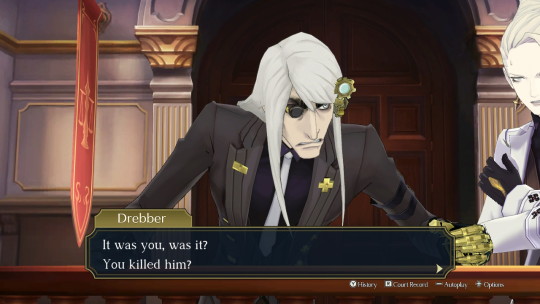

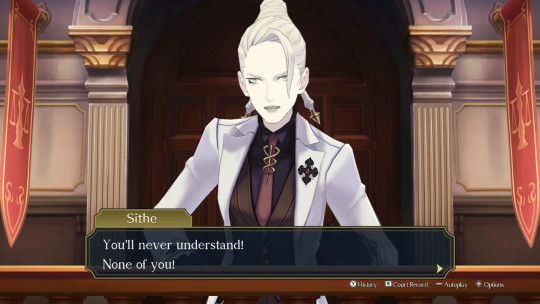
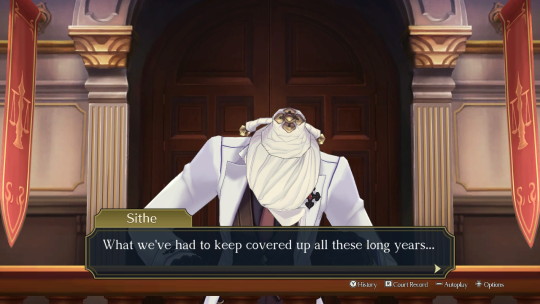
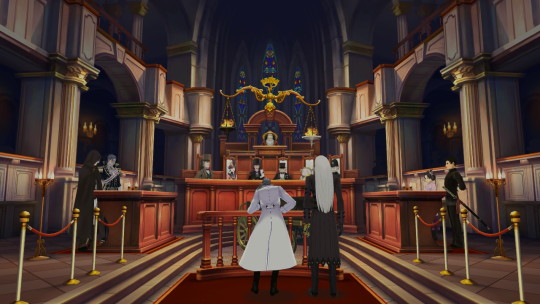
I have a lot to talk about in this scene, boy oh boy. First of all, I love the character implications of Enoch's reaction here. He isn't happy at all at the reveal that Courtney was the one who actually killed Asman. The fact that he gets outright angry at her is so interesting. It reveals just how deeply he desires his revenge, and how emotionally driven his actions are despite his logical thinking. He's able to keep himself from outright confessing for a long time even when it's fairly clear what he's done, because he knows there's no actual proof and he doesn't want to implicate himself. He suppresses his pride again and again, hinging his defense on the pretense that he doesn't understand stuff or made dumb mistakes (his clients' designs, the scene in the graveyard, his claim to be a merely average student). But here, he can't hold himself back. He gets so mad, because in his eyes she has stolen his revenge out from under him, in much the same way she was one of those who helped to steal his future back then. It infuriates him.
And his word choice is super revealing too. He asks if she's been taking him for a fool first. Because that matters hugely to him. He is just fine playing the role of someone who is less intelligent (meaning only average rather than above, he never really tries to act outright dumb) because he knows that he is playing a role. Every time someone believes him about that, it's in the context of him successfully fooling them to get his way, it's him outsmarting them. He still has his Young Scientist award. He never got the formal qualifications or the career he aspired to, but he's always seen that as the fault of others. His own capabilities are something he has faith in. So the fact that not only did his murder plan fail to actually kill his target, but that Sithe has successfully lied to and fooled him makes him utterly furious. He's supposed to be the one who tricks others. He's not supposed to get tricked himself. It spits on his pride in his intellect, the one thing that has never been compromised.
So that's Drebber in isolation.
But I also want to talk about Sithe here. She also snaps, shouting and collapsing on to the podium. For someone usually so cool and collected, this is a big deal. And it confirms that she has a completely different set of priorities. She feels so weighed down, and has for years now. Exactly what went down back then is still unclear, but it's obvious that she has a deep sense of duty that she places even above her own wellbeing. Whether that is the Yard's reputation, her staff, or the secret from so long ago... she tries to keep it covered up and safe as much as she can. She's willing to break the law and even commit murder, and then eventually to admit to varying degrees of doing so, before she is willing to tell the truth. It's clear in this moment that she doesn't enjoy any of this. But she feels like she has to do it. I don't know if her motives are truly big-picture all the way down or if there is some element of coercion much deeper than what Drebber tried on her (something with her daughter, maybe?) but either way it is her duty to someone/something outside herself that dictates all her behavior.
I especially love noticing both of those things about each of them here, because on a more surface level they have a lot in common. They both have a really cool 'cold scientist' aesthetic, they both are very logical and mostly calm, very intellectual about what they say. They both have a scary smile. They share a very similar color pallete, with pale hair and skin, gold accents, black and white as the overwhelming colors in their clothes (just in reverse, with Drebber wearing black with a white tie, and Sithe wearing a white coat with darker clothes underneath). The way they both collapse forward onto their arms when overwhelmed is really similar. And they both do that here! But for very different reasons. Enoch is driven by emotion, by revenge and pride. Sithe is driven by duty, by protectiveness and burdens.
Drebber has a bad reputation but pride in himself, going in to this. Sithe had a good reputation but guilt weighing on her. And in this scene, that reverses at least a little. Drebber's proved correct about the events in the graveyard, and innocent of any actual murder... but he learns that he has been fooled. Sithe's proven to be corrupt and a murderer... but as a result, she no longer has to be responsible for the way things turn out anymore. It's not total in either case - Drebber still tried to kill Asman, and Sithe is still keeping secrets - but it's still super cool.
18 notes
·
View notes
Text
I tried my hand at a Post TGAA Rei design!
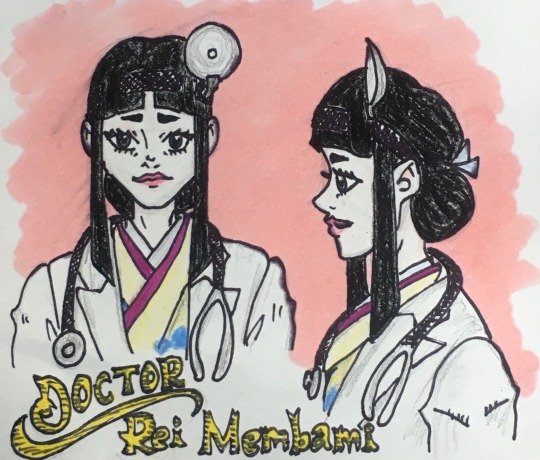
I wanted to play around with character design, and I wanted an additional challenge with a character that I hadn’t drawn a lot, so to take down two birds with one stone, I chose Rei!
As cool as I think it would be if she followed Mikotoba’s footsteps and focused more on forensic science, I felt that she never really felt like her own person outside of the other characters. I wanted to develop what she might be like outside of the context of court-- thus Dr. Rei Membami, M.D, entered the scene!
One of my biggest challenges was trying to figure out what I wanted to do with her hair. I didn’t just want her regular design but add a labcoat, head mirror, and stethoscope, but I did want to keep some elements of her so that she’s recognizable, like her bangs and side hair. So, to solve my problem, I took a look at her concept art here. I noticed that a lot of her beta designs had her hair up in some ways, and I thought that was such a good touch, especially for a doctor who’s busy on her feet! I went with the low bun look to make her look more mature since this is a 26 year old lol!
I decided to keep her kimono the same because I love the color scheme, and I even managed to add some Forget-Me-Not flowers (can you believe it took me this long to realize THAT’S why they went with Rei Membami for her localization?? XD). I also decided to make her bow a little more subtle by making it smaller and only visible from the back or side.
This was such a fun exercise, and I think I might do some more post-canon designs!
#rei membami#haori murasame#murasame haori#the great ace attorney#the great ace attorney chronicles#dai gyakuten saiban#tgaa#tgaac#dgs#character design#time skip#meta#my art
17 notes
·
View notes
Text
I think it’s kinda Thematically Interesting how TGAA2 at first hyped up Prosecutor Asogi as, like, ‘ohhh watch out!! This guy was already a qualified defense attorney! He knows how to use the Defense’s tactics in favor of the Prosecution!’. And, like, yeah, that is a strength Kazuma demonstrated throughout the trial….
But he also ended up facing a lot of the challenges that an AA Defense Attorney usually has to face.
Like, having a culprit confess to their wrongdoing to you in private
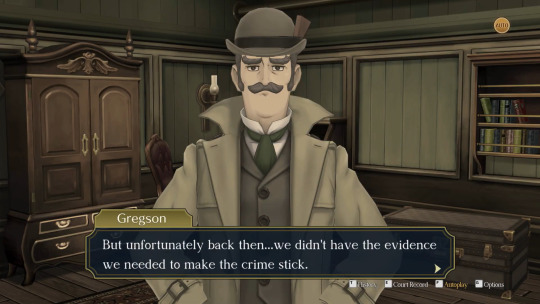
And then being unable to prove this confession ever happened in Court.

That’s what happened to Kazuma in this trial, but it also happened to Phoenix and the rest of the AA crew countless times before.
Or just generally, like, knowing that the case you’re working on now is deeply related to finally solving a previous case from X Years Ago... But to actually peruse investigating it, you need to somehow convince the rival legal counsel to somehow see that connection and trust you that there is a connection - even if you can’t prove it until further down the line. And you can't prove it unless you can get them to trust you....
That’s a pretty common trope for AA Final cases but.... one that Ace Attorney players usually experience only from their side.
But this time, it's the Prosecutor is the one faced with the challenge of proving the connection between the past and present cases. And the Defense, and the Player, are faced with the challenge that the Prosecutor usually faces - the challenge of trusting their rival and their new line of inquiry.
Prosecutor Kazuma is not just a demonstration of how the Defense’s tactics and tricks look from the perspective of their rivals - he also demonstrates how the challenges of the Defense feel from the other side of the bench.
#ace attorney#the great ace attorney#aa#pwaa#phoenix wright#phoenix wright ace attorney#gyakuten saiban#dgs#dai gyakuten saiban#dai gyatuken saiban#tgaa#tgaac#tgaa2#kazuma asogi#great ace attorney#dgs2#tgaa chronicles#tgaa 2#kazuma asougi#asogi kazuma#asougi kazuma#aa meta#ace attorney meta
207 notes
·
View notes
Text
I think Ace Attorney fandom shouldn't go hard on people who engage with fanworks about male chararcters and relationship between them way more often than with same about female characters. Capcom does the same thing, and it's far less justifiable
Ask yourself how long it was since you last saw an official art with Ryu with Susato, his assistant and essentialy deuteragonist of the story instead of Ryu being with a character who's barely been in half of the cases?
Have you ever seen a piece of the official TGAA merch that isn't the same four Ryunosuke/Kazuma/Sholmes/Barok?
Or the attorney roster with Mia and/or Athena being presented - one being an incredibly important character for the frontman character of this franchise and the other being the main hero of the trilogy that is coming out soon and should be advertised?
It's important to understand that the creator/fanbase interaction is self-feeding circle. The creators advertise something -> fans see this thing more often -> fans care about the thing often -> the creators see the thing is popular and promote in more and more. Of course "being the change you want to see" and engaging/creating stuff about characters you want to see being talked about more is a beautiful message and it's really important and assuring, but all in all, you can only do this much with it
45 notes
·
View notes
Text
So, basically... Did karma hit Barok when he got framed with a gun in his hand the way Gina was?
#dgs 2 spoilers#tgaa 2 spoilers#barok van zieks#gina lestrade#meta#mine#I just realized bc I'm re-watching a gameplay#it's the second time since last november#they have much in common do they?
10 notes
·
View notes